A new horizon of opportunities has opened up before Bangladesh after the student-mass uprising of 2024. It is the third historical opportunity for Bangladesh within a span of over half a century,
‘A minus sign is an incomplete plus sign’- two minus signs of the past should make a plus sign this time. Let us revisit the two lost opportunities so that we can have a lesson learning. How is it possible that we never learned lessons from our history?
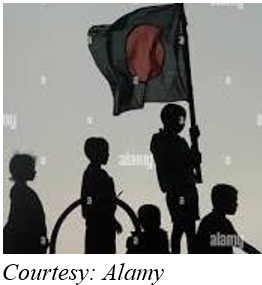 The first historical opportunity was obviously created on 16 December, 1971 when the people of Bangladesh liberated the country. Being in a leading role during the liberation war, the Awami League (AL) had the most responsibility for building the foundation of a new nation. But this national aspiration failed as the leaders of the AL could not go above and beyond their party. Bangabandhu Sheikh Mujibur Rahman returned to Bangladesh on 10 January, 1972 which raised people’s expectations to sky-high. But the hopes turned to disappointments due to the following reasons:
The first historical opportunity was obviously created on 16 December, 1971 when the people of Bangladesh liberated the country. Being in a leading role during the liberation war, the Awami League (AL) had the most responsibility for building the foundation of a new nation. But this national aspiration failed as the leaders of the AL could not go above and beyond their party. Bangabandhu Sheikh Mujibur Rahman returned to Bangladesh on 10 January, 1972 which raised people’s expectations to sky-high. But the hopes turned to disappointments due to the following reasons:
-
- Instead of a broad-based national government, Bangabandhu Sheikh Mujibur Rahman formed a party-based government. Thus, a historical opportunity of forming a national consensus on key issues was missed.
- The members of the parliament elected during the Pakistani period formulated and approved a constitution on 4 November, 1972. No referendum was held to get the mandate of the people.
- The first parliamentary election of the new nation was held on 7 Match, 1973; but it was not free and fair.
- Democracy, one of the fundamental foundations of the country, was eliminated on 24 February, 1975 with the formation of one-party rule of BAKSAL.
- The extrajudicial killing reached a new height with the killing of Siraj Sikdar, the leader of the Sarbahara Party, in police custody.
This is not the end of the tragedy. A great tragedy occurred on 15 August, 1975, followed by a few more.
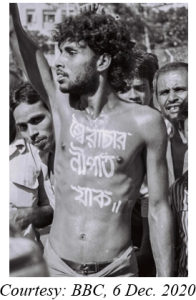 The second historical opportunity was created on 4 December, 1990 by another student-mass uprising. It toppled General H.M. Ershad through a 9-year mass movement and then a caretaker government took charge on consensus. Only fifteen days earlier, the BNP led seven-party alliance, the AL led 8-party alliance and the Left-oriented 5-party alliance drafted a ‘Joint declaration of three alliances’. This declaration was made by all major political parties of the country on the basis of consensus and hence it became a national charter as well as a historical document of the democratic movement of Bangladesh.
The second historical opportunity was created on 4 December, 1990 by another student-mass uprising. It toppled General H.M. Ershad through a 9-year mass movement and then a caretaker government took charge on consensus. Only fifteen days earlier, the BNP led seven-party alliance, the AL led 8-party alliance and the Left-oriented 5-party alliance drafted a ‘Joint declaration of three alliances’. This declaration was made by all major political parties of the country on the basis of consensus and hence it became a national charter as well as a historical document of the democratic movement of Bangladesh.
The essence of the ‘Joint declaration of three alliances’ was:
(i) establishment of true democracy and democratic rule in the country based on the spirit of the Liberation War; and
(ii) holding free and fair parliamentary elections under a non-party caretaker government within 90 days of its arrival to power.
This second historical opportunity was lost due to the betrayal of the political parties with the ‘Joint declaration of three alliances’. The BNP initiated the betrayal process by manipulating the caretaker process, and the AL completed it by removing the caretaker provision altogether.
The BNP came to power in 1991 after the first general election under the caretaker government. When its term expired in 1996, the BNP conducted a general election under the party rule, not under the caretaker government as envisioned in the ‘Joint declaration of three alliances’. All other political parties started mass movement demanding a new election under the caretaker government. The BNP was compelled to conduct another election after passing the 13th amendment to the constitution with the provision of a non-party caretaker government.
The AL and Sheikh Hasina assumed power after the second election in 1996. In the next term, the BNP and its alliance again came to power after the election under caretaker government in 2001. After its term was over in 2006, the BNP started manipulating the caretaker system in its favour. Consequently, the AL and other major political parties started a mass movement.
The ensuing political crisis was called the ‘Battle of Begums’ by the world media. Bangladesh again came back to the cycle of street agitation, hartals, arson, blockade, that caused widespread losses to lives and property. The nation witnessed the emergence of One-Eleven on 11 Jan 2007 when a military supported government assumed power. This government ultimately conducted a general election under a caretaker government. The AL and its alliance came to power in 2009. Sheikh Hasina and the AL took revenge in 2011 when it abolished the much successful caretaker system by the 15th constitutional amendment. It was kind of cutting off the head to cure headache.
The 15-year rule by Sheikh Hasina and the AL was a chapter of autocracy, cronyism and corruption. No fair and free election was held during this period. Rule of law was absent, voices of the people were suppressed, government institutions were politicized. What Spanish philosopher George Santayana said “those who do not learn from history are condemned to repeat it” was proved by Sheikh Hasina and the AL.
Three major political parties ruled the country since independence – the AL for 24 years, the BNP for 15 years and the Jatiya Party (JP) for 9 years. They did not establish a permanent and fair system that can change the government peacefully within a democracy. It is a fact that not a single free and fair election was held while these parties were in power for a total 48 years. They always manipulated the system to go to power and to remain in power, by hook or by crook.
Only four free and fair elections were held in Bangladesh’s history, all under caretaker governments. All three parties are very similar in terms of party organization and culture. All of them were led by a single person: the AL by Sheikh Mujib and then by Sheikh Hasina; the BNP by Ziaur Rahman, followed by Begum Khaleda Zia; and the JP by H.M. Ershad. These parties do not have democracy within the party – to them party chief’s thinking is party’s thinking, party chief’s decision is party’s decision. How can such political parties establish democracy in the country without first establishing democracy within their own parties?
Camouflaged in democratic grab, the three major parties ruled the country by a quartet of politicians, bureaucrats, businessman, army; to them, public opinions were of secondary importance. Mock elections were held under them as an eye wash to the people and the resulting parliament was merely a rubber stamp. The general public were just the spectators of the whole circus. Sheikh Hasina and Begum Khaleda Zia made Bangabandhu Sheikh Mujibur Rahman and Ziuar Rahman – their father and husband respectively – rivals to each other. It was like a personal feudal fight between the two ladies. They ignored the fact that these two great leaders had made historic contributions to the liberation of the country despite their colossal failures afterwards.
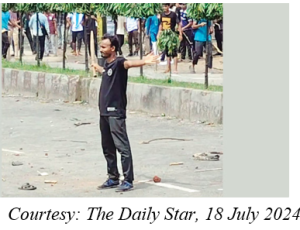 People of Bangladesh never accepted injustice. In line with this long, glorious tradition, student-mass uprising of 2024 toppled Sheikh Hasina and the AL, opening the third historical opportunity for Bangladesh to challenge and change the status quo. Wise and far-sighted decisions must be taken so that this opportunity is not wasted too like the two in the past.
People of Bangladesh never accepted injustice. In line with this long, glorious tradition, student-mass uprising of 2024 toppled Sheikh Hasina and the AL, opening the third historical opportunity for Bangladesh to challenge and change the status quo. Wise and far-sighted decisions must be taken so that this opportunity is not wasted too like the two in the past.
“We cannot solve our problems with the same kind of thinking we used when we created them” – Einstein’s words can be a guiding principle and hence we need to bring about a paradigm shift. New perspectives, fresh outlooks and past lessons will be our necessary ingredients, a few thoughts being furnished below:
-
- A ‘Truth and Reconciliation Commission’ can be formed in co-operation with the UN Human Rights Council to investigate the facts of the past 15-year autocratic rule of the AL in terms of political oppression, corruption, extrajudicial killings etc. It will be in line with the idea of The Truth and Reconciliation Commission (TRC) in South Africa that was established in 1996 by Nelson Mandela to investigate human rights violations during apartheid. The commission’s work was intended to help South Africans heal and reconcile with each other.
- A `Constitutional Commission’ can be formed to re-write the country’s constitution as the existing one failed to protect the rise of autocracy. The new constitution should balance the power of the President and the Prime Minister and also it needs to limit their terms. The Constitution is required to ensure the separation between the three branches: legislative, executive and judicial branches to make sure no one group or individual has too much power. The fundamental clause of the constitution should include: (i) spirit & aspirations of the liberation war of 1971, (ii) ‘Joint declaration of three alliances’ of 1990, (iii) spirit & aspirations of the student-mass uprising of 2024. This clause should be `unchangeable’ in the constitution. A referendum needs to approve the proposed constitution.
- Reforms are also needed in the civil administration as well as within the judiciary, especially to prevent political influence and improve efficiency and to ensure merit-based recruitments and promotions. Similarly, the country’s security apparatus – the army, police and RAB – need to reformed so that people’s trust is restored.
- A free and fair election needs to be held after the necessary political, economic and judicial reforms. The responsibility of the reform should not be left to the politicians as they would manipulate it to their advantage. Dr. Muhammad Yunus, the Chief Advisor of the interim government is a visionary person who needs to ensure that all reforms are complete before the election. We see in him a statement we need at this critical hour as “a politician thinks of the next election; a stateman thinks of the next generation.”
It is a positive development that the Interim Government already formed six commissions, each focusing on a crucial sector – electoral system, police administration, judiciary, anti-corruption commission, public administration, and the constitution. These commissions aim to create long-term institutional changes in Bangladesh.
It is very important that non-controversial persons with experience and expertise are selected for these commissions. And that these commissions conduct nation-wide and inclusive dialogue in producing their reports.
The people of Bangladesh have witnessed a new dawn, the beginning of a new day and thus a chance for hope and renewal. Let them succeed.

Chowdhury Salahuddin Mahmood
Chowdhury Salahuddin Mahmood hails from Chittagong. He has a B.Sc Engineering (Electrical) degree from the Bangladesh University of Engineering & Technology (BUET) and a M.Sc Engineering (Electrical) degree from the University of Texas at Arlington (UTA). Since January 1998, he has been working for the telecom company Nokia as a Senior Test Engineer. He is actively involved with the Bangladeshi diaspora community in Texas. He was Vice President of the Bangladesh Association of North Texas (BANT, 2004-2007). Since 2006, he has been active with the `Distressed Children & Infants International (DCI), an organization helping the underprivileged children of Bangladesh. Since 2008, he has been active with the Bangladesh Origin New Generation Organization (BONGO), an organization working to help the High school graduates of the Bangladeshi diaspora. In 2007, he started publishing Bangla literary magazine ` অগ্রবীজ’, as one of its founder-editors. This magazine is still in publication. In 2008, founded the BUET Alumni Association (BUETTA) of Dallas-Fort Worth as one of its founders. During 2010-2019, he Acted as the President of the Dallas Bangla Theater (DBT), the premier Bangla drama group in the USA. He writes on topics of literature, culture, and history, and so far published 3 books in Bangla: `বিচিন্তা বিভাবনা’, ‘সময়সাগরতীরে জীবনানন্দ’, ‘বিচিন্তা বিবিধ’.
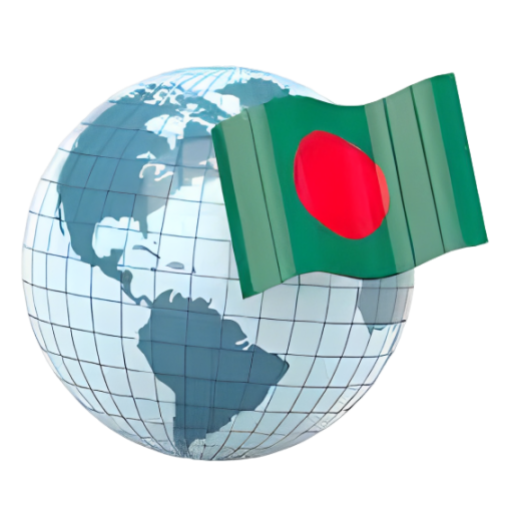
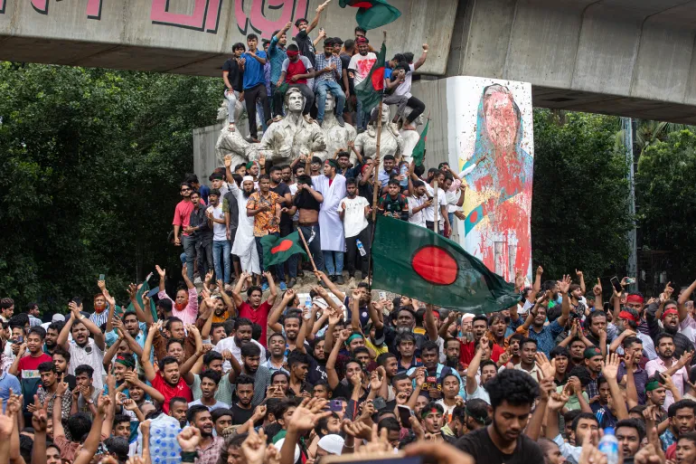
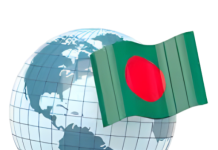
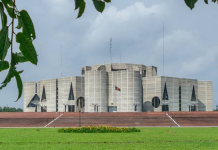
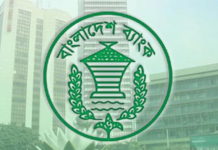
An excellent well thought writing